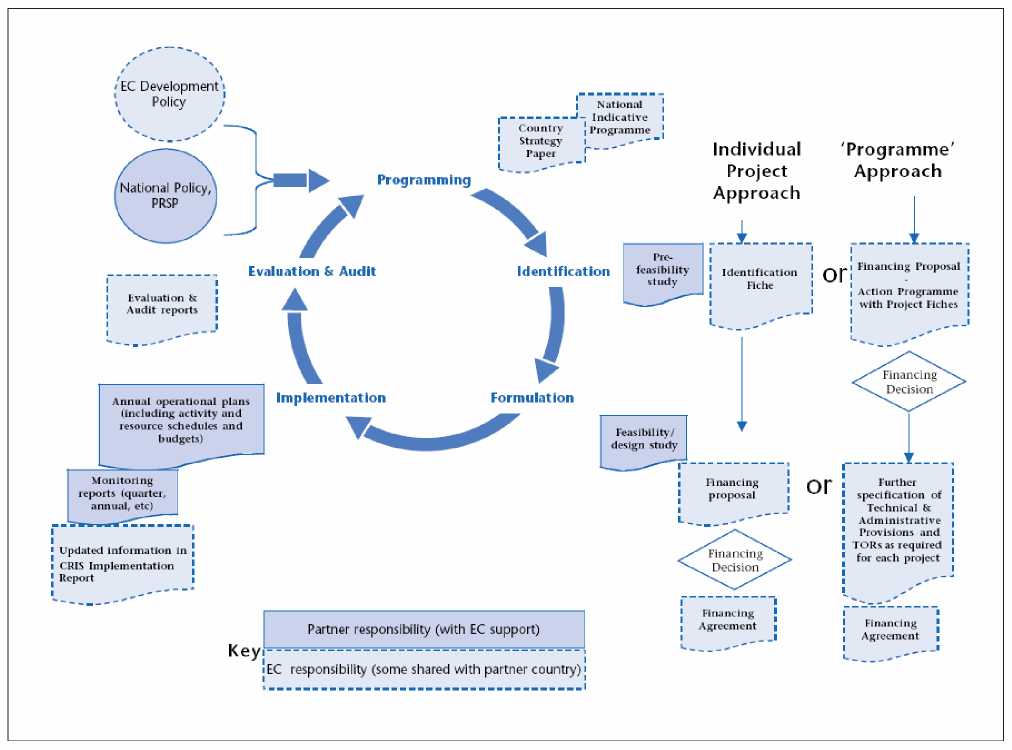• requires the active participation of key stakeholders and aims to promote local ownership;
• uses the Logical Framework Approach (as well as other tools) to support a number of key
assessments/analyses (including stakeholders, problems, objectives and strategies);
• incorporates key quality assessment criteria into each stage of the project cycle; and
• requires the production of good-quality key document(s) in each phase (with commonly
understood concepts and definitions), to support well-informed decision-making.” (PCM Guidelines
2004, p.17).
Active key stakeholders’ involvement and promotion of local ownership are key features
encouraging a bottom-up approach in practical manner in project activities. Sustainability is
explicitly present in the ways to assure the fulfilment of the PCM principles. The required key
documents and the related decision-making process are briefly presented in the following picture.

Figure 5 Project Cycle, Documents and Responsibilities (PCM Guidelines 2004, p.19)
The operational research component is present throughout the lifetime of the cycle, various types of
studies, monitoring and evaluation activities contributing to the completion of the phases. The
financial proposal and correspondent agreement are designed during different stage, depending on
the complexity of the project.
12
More intriguing information
1. Staying on the Dole2. The Works of the Right Honourable Edmund Burke
3. The Variable-Rate Decision for Multiple Inputs with Multiple Management Zones
4. Does South Africa Have the Potential and Capacity to Grow at 7 Per Cent?: A Labour Market Perspective
5. The name is absent
6. Innovation and business performance - a provisional multi-regional analysis
7. The magnitude and Cyclical Behavior of Financial Market Frictions
8. Can genetic algorithms explain experimental anomalies? An application to common property resources
9. Menarchial Age of Secondary School Girls in Urban and Rural Areas of Rivers State, Nigeria
10. Langfristige Wachstumsaussichten der ukrainischen Wirtschaft : Potenziale und Barrieren